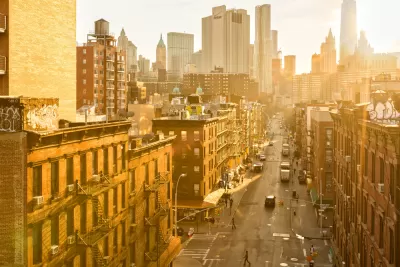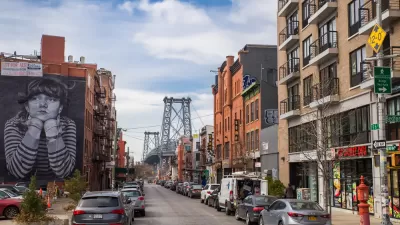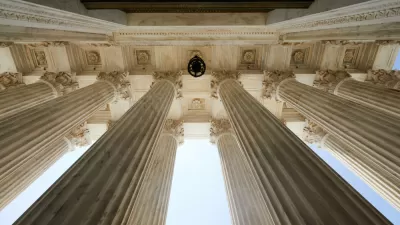A brief by the Cato Institute describes historic preservation laws as arbitrary and ambiguous. A case before the Supreme Court could decide on either side of the issue.

Nick Zaiac shares news of a new research brief from the Cato Institute that argues for consistency between the historic preservation rules of major American cities. According to Zaiac and the Cato Institute, preservation laws tend to be ambiguous and arbitrary as a result of "a difference in the ways various circuit courts interpret historic preservation." That is, "[t]he nation is split between areas governed by property-owner-friendly rules (the Third and Seventh Circuit Courts of Appeals), areas governed by regulator-friendly rules (the First, Second, Fourth, Sixth, Eighth, Tenth, and Eleventh Circuit Courts of Appeals), and areas where courts have not ruled (the Ninth and D.C. Circuit Courts of Appeals)."
The Cato Institute's brief supports the side of Stahl in a case currently before the Supreme Court, Stahl York Avenue Co., LLC. v City of New York and New York Landmarks Preservation Commission, in "[seeking] to iron out these legal ambiguities, and make the laws of the Third and Seventh circuit courts applicable nationwide."
FULL STORY: The Cato Institute Goes After Arbitrary Historic Preservation Laws

Alabama: Trump Terminates Settlements for Black Communities Harmed By Raw Sewage
Trump deemed the landmark civil rights agreement “illegal DEI and environmental justice policy.”

Study: Maui’s Plan to Convert Vacation Rentals to Long-Term Housing Could Cause Nearly $1 Billion Economic Loss
The plan would reduce visitor accommodation by 25% resulting in 1,900 jobs lost.

Planetizen Federal Action Tracker
A weekly monitor of how Trump’s orders and actions are impacting planners and planning in America.

Wind Energy on the Rise Despite Federal Policy Reversal
The Trump administration is revoking federal support for renewable energy, but demand for new projects continues unabated.

Passengers Flock to Caltrain After Electrification
The new electric trains are running faster and more reliably, leading to strong ridership growth on the Bay Area rail system.

Texas Churches Rally Behind ‘Yes in God’s Back Yard’ Legislation
Religious leaders want the state to reduce zoning regulations to streamline leasing church-owned land to housing developers.
Urban Design for Planners 1: Software Tools
This six-course series explores essential urban design concepts using open source software and equips planners with the tools they need to participate fully in the urban design process.
Planning for Universal Design
Learn the tools for implementing Universal Design in planning regulations.
Caltrans
Smith Gee Studio
Institute for Housing and Urban Development Studies (IHS)
City of Grandview
Harvard GSD Executive Education
Toledo-Lucas County Plan Commissions
Salt Lake City
NYU Wagner Graduate School of Public Service





























